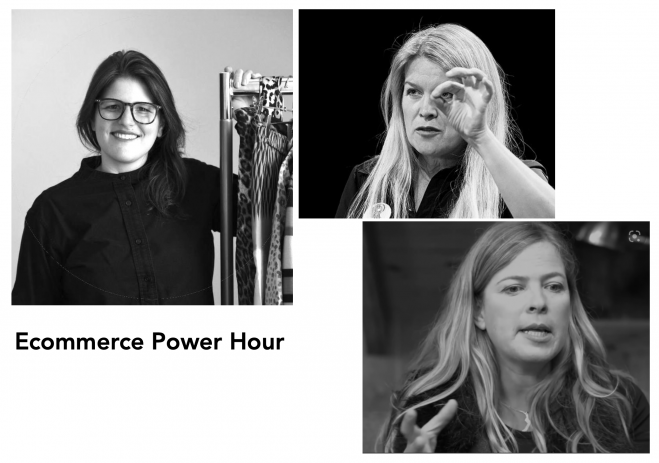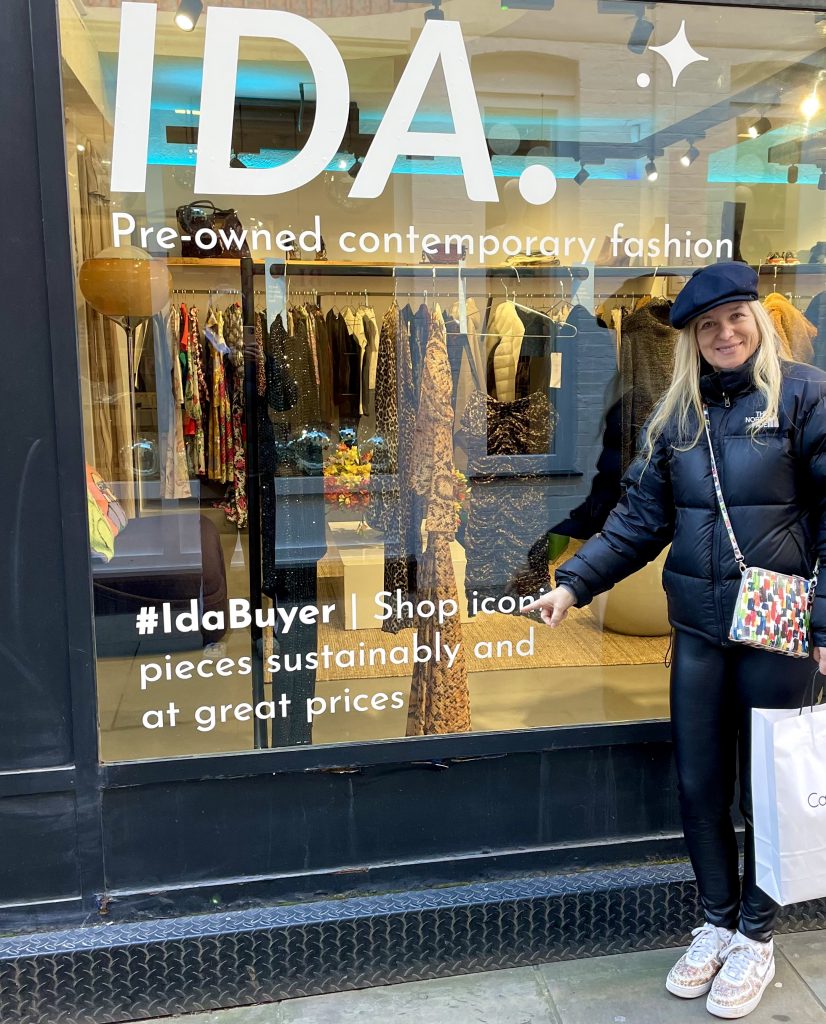
By Wael Elazab
It’s the season to be jolly-well consuming, but can we do so sustainably, ethically and economically? From two-person startups to corporate conglomerates, environmental sustainability is almost a staple of operations, and more shoppers are tangling with the reality of it.
The Ecom Power Hour is presented by The Retail Practice Ecommerce Director Eva Pascoe, and brings London tech-advocates to challenge, check and assess the conversation at hand. Joining Eva this month, circular economist, and cofounder of resale platform IdaYourBrand.com, Agnes Brenninkmeijer, with strategic advisor, and leadership mentor at She Leads Change, Nicola Millson.
Retail brands with shops IRL, typically have mobile-friendly websites, social media and other e-ways, for customers to browse and buy. But does e-commerce offer benefits beyond the binging, for our pockets as well as our planet?
Sewing sustainable beads
E-bead counting is not new, debit cards are decades old; buying joggers while in your pjs, before breakfast – that’s new. Remote shopping was trending by 2015, and continues without missing a stitch. For retail trade, the 2019 pandemic was a potent shot in the derriere.
A tripling of online sales during the pandemic is predicted to continue beyond 2025. This is good, we think, though brings challenges. When Eva polled the audience about whether e-commerce helps or hinders the sustainability cause, “too early to tell” took half the audience vote. And the public at large are similarly split as to whether the price our planet pays is higher, or lower.
Storage, transportation and tracking are among innumerable inefficiencies of the past, “Often the wrong stock, in the wrong sizes was being sent to the wrong shops,” Eva recalls, stock moved up and down all the time, it was not efficient. “Top Shop and Arcadia had 4000 stores at one point and often those shops, in reality ‘mini-warehouses’ , had too much stock. Along with warehouses, e-commerce brought significantly improved distribution and enhanced logistics. Lower operating costs for retailers meant improved savings for shoppers. Fashion got cheaper and more affordable.
Dress up and smell the formaldehyde
Marks & Spencer’s, and many larger brands, have resources to make change. But, like Agnes from IdaYourBrand.com says, “It’s difficult and expensive,” and there are few incentives for new, or lesser-known brands. Ida brand helps women to recycle their branded warderobe and sell it thru Ida to let it got to a new owner.

Also, currently raising monies, Agnes says, “Fundamentally, it is the financials that matter, and [investors] want to know their take. The pushback is on the numbers and making circular fashion work.”
Consumerism, Nicola believes, is the root, and retailers, “must ask what experience the consumer is looking for, and deliver it without any extras.” Better transparency, Nicola says, is important for, “Understanding what the social and environmental costs are.”
Cross-cultural nuance, must also be considered, as Eva highlights influencing associations, “In the UK, a lot of sustainability is about purity,” like parents wanting only the purest organic cotton for their new-born, however, organic cotton doesn’t hold up well; “The Swedish parent wants to wash [children’s clothes] 70 times, and another 70 for the younger sibling, it is the longevity and makes clothes more sustainable.”
The circular economy
Agnes, too, calls consumerism culprit, “Repair is yet to be tapped into, … making sure goods stay in the loop longer.” For Nicola, higher sales should not equal progress, “There are multiple ways to meet our human needs. [The economy] should be serving us and the planet, not just shareholders.”
So, evolutionary changes won’t do, says Eva, “Revolutionary change is what we need.”
“Clubbing in the metaverse,” is the answer Eva heralds, and says it’s digital cash we should be laying down, buying skins for our nightlife-loving club avatars; just like she had a cameo in the original metaverse Virtual Nightclub

(Nicola sees holochange-rooms of the future, outfits and designs beamed onto your person – for the experience, no purchase necessary.
But, IRL, consumers, by their very nature, want the best for the least and will keep consuming as such. Unless, as Nicola states, “We stop calling people consumers,” ultimately, we are citizens of this planet, and we, “Live in the planet, not on it. [Fashion] is cultural communication, and if we can make changes here, it may ripple into other areas.”
To date, you have been fashioning retail. Diversity in the industry, inclusive skin tones of models, of body-shapes, plus size – all acceptance and inclusivity, came about through people speaking up, taking action on social media, on hashtags and pages of Facebook. Lets keep up the pressure.
Be the e-change.
Next Ecom Power Hour will be on Wedn 16th Feb 4.30pm – sign up here for updates: